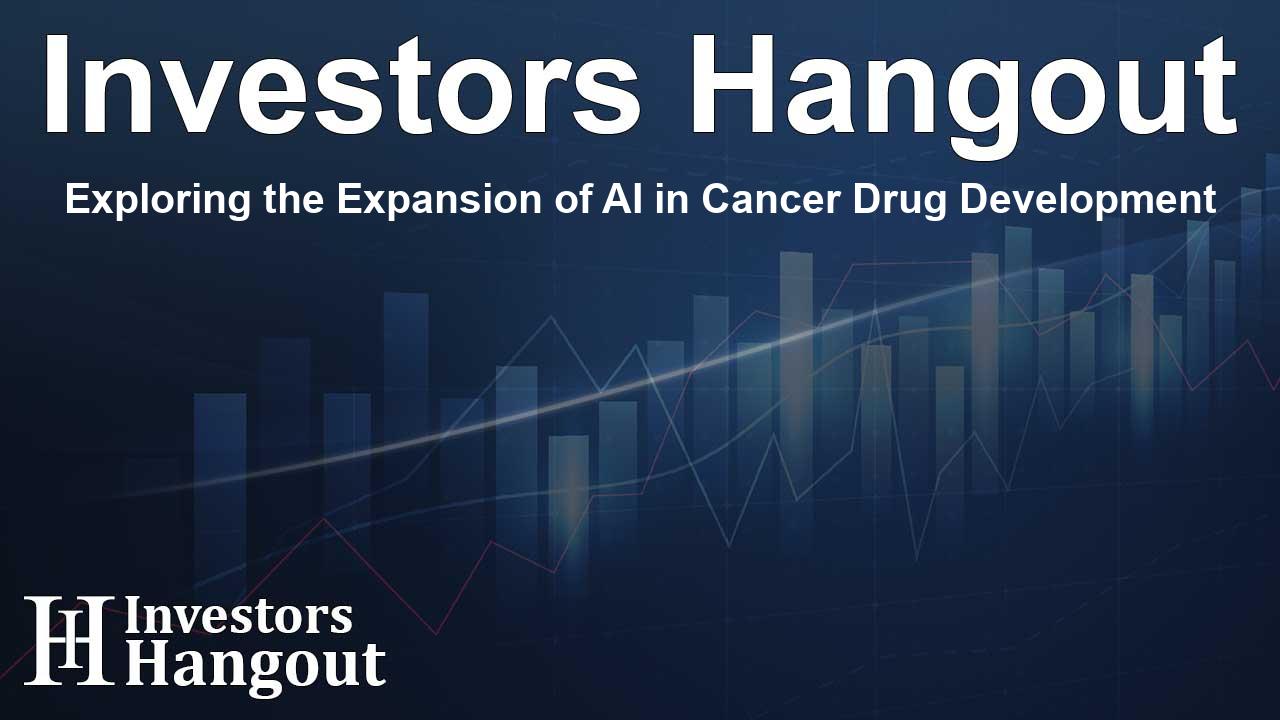Exploring the Expansion of AI in Cancer Drug Development

Understanding the AI in Cancer Drugs Market
The global AI in cancer drugs market is witnessing an incredible transformation as technology evolves and customer demands shift. With projections suggesting potential revenues in the hundreds of millions between now and the early 2030s, it's clear that the infusion of artificial intelligence (AI) is setting the stage for groundbreaking changes.
Key Market Trends and Forecasts
As of recent observations, North America has established itself as the dominant force in the market, driven primarily by technological advancements and significant investments in healthcare innovations. Meanwhile, the Asia-Pacific region is anticipated to display the fastest growth, fueled by a rising incidence of cancers among an aging population and substantial funding directed towards AI-driven solutions.
Revenue Insights
In 2024 alone, the software segment claimed a significant share of the market, demonstrating the necessity for robust and sophisticated applications in cancer drug development. Key players in this sphere are deploying AI to streamline drug discovery processes, significantly alleviating the traditionally long timelines associated with developing effective therapies.
Drivers of Market Expansion
The adoption of AI technologies is being accelerated by various key drivers. For instance, machine learning has positioned itself at the forefront of this revolution by enhancing drug discovery, optimizing treatment plans, and enabling earlier cancer detection. As AI continues to evolve, the integration of advanced algorithms is revolutionizing traditional methodologies.
Regional Market Analysis
North America’s success can be attributed to a confluence of factors: a high prevalence of cancer, increasing technological advancements, and strategic investments by the pharmaceutical sector. Companies are leveraging AI frameworks, such as advanced predictive models developed by the National Cancer Institute, to optimize patient-specific treatment options.
Asia-Pacific Growth Dynamics
In the Asia-Pacific region, growth is anticipated due to an alarming rise in cancer cases, particularly lung and breast cancers. Collaborations between AI firms and established pharmaceutical companies are becoming increasingly prevalent, leading to innovative solutions aimed to tackle this health crisis.
Challenges Facing the Market
While the AI in cancer drugs market is poised for extensive growth, it is not without challenges. The reliance on quality datasets poses significant hurdles; building effective AI models hinges on having access to comprehensive and diverse datasets, which are often constrained by regulatory frameworks like HIPAA and GDPR.
Important Applications of AI
AI’s role in drug discovery is set to revolutionize the pharmaceutical landscape. It enhances the efficiency of clinical trials and identifies new drug targets, thereby streamlining processes. Precision medicine continues to gain traction as AI-driven systems deliver tailored treatment recommendations based on individuals’ genetic and clinical data.
Prominent AI Technologies
The machine learning segment has made substantial gains in the market, applying techniques to predict how unique drug combinations may perform against various cancers. Additionally, deep learning technologies are rapidly becoming essential for integrating complex biological data into actionable insights.
Company Engagements
Leading companies are focusing on establishing strategic partnerships aimed at fostering innovation in AI technology applications within cancer treatment. Early players in this market, including those working on AI-supported platforms for personalized medicine, are crucial stakeholders shaping the future of this evolving landscape.
Looking Forward: The Future of AI in Cancer Drugs
The path ahead for the AI in cancer drugs market is promising. With a rapid influx of innovation, healthcare providers, pharmaceutical companies, and research institutions are set to benefit from enhanced capabilities and efficiencies. AI will not only transform drug development processes but will also redefine patient care in oncology.
Frequently Asked Questions
What is the AI in cancer drugs market?
The AI in cancer drugs market refers to the integration of artificial intelligence technologies into the processes of drug development, focusing on efficient drug discovery and personalized therapy approaches.
Why is North America leading in this market?
North America leads due to its advanced healthcare systems, significant research funding, and the presence of leading biotech and pharma companies that are adopting AI solutions.
What are the expected growth regions?
The Asia-Pacific region is expected to exhibit the fastest growth due to rising cancer incidences and increased investment in healthcare solutions.
What role do machine learning and AI play?
Machine learning and AI facilitate faster drug discovery, enhance clinical trial efficiencies, and enable precise medicine tailored to individual patient needs.
What challenges does the market face?
Challenges include data accessibility, regulatory hurdles, and the need for high-quality, comprehensive datasets for effective AI model training.
About The Author
Contact Owen Jenkins privately here. Or send an email with ATTN: Owen Jenkins as the subject to contact@investorshangout.com.
About Investors Hangout
Investors Hangout is a leading online stock forum for financial discussion and learning, offering a wide range of free tools and resources. It draws in traders of all levels, who exchange market knowledge, investigate trading tactics, and keep an eye on industry developments in real time. Featuring financial articles, stock message boards, quotes, charts, company profiles, and live news updates. Through cooperative learning and a wealth of informational resources, it helps users from novices creating their first portfolios to experts honing their techniques. Join Investors Hangout today: https://investorshangout.com/
The content of this article is based on factual, publicly available information and does not represent legal, financial, or investment advice. Investors Hangout does not offer financial advice, and the author is not a licensed financial advisor. Consult a qualified advisor before making any financial or investment decisions based on this article. This article should not be considered advice to purchase, sell, or hold any securities or other investments. If any of the material provided here is inaccurate, please contact us for corrections.
